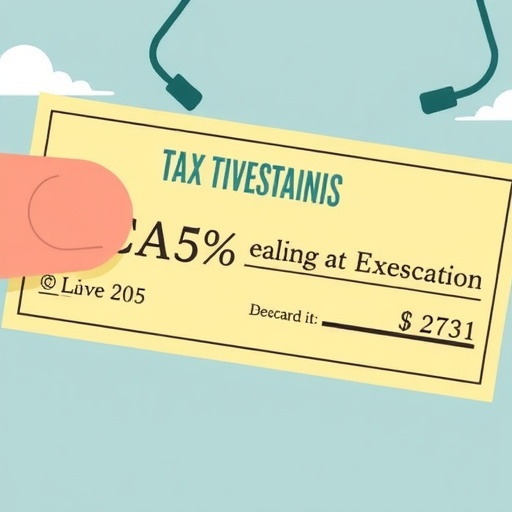Democrats Push ACA Tax Credit Extension as Shutdown Lifeline: Public Support Builds Amid Crisis
In a bold move to break the ongoing federal shutdown impasse, Democrats in Congress are championing the extension of Affordable Care Act (ACA) tax credits, positioning it as a pragmatic solution that could restore stability to millions of American families. As the shutdown stretches into its third week, this proposal has ignited fresh negotiations, with polls revealing more public backing than resistance, even as indifference lingers among a significant portion of voters.
- Democrats’ Strategic Bid to Link Tax Credits with Shutdown Resolution
- Public Polls Show ACA Tax Credits Winning Hearts Over Shutdown Fatigue
- Shutdown’s Devastating Impact on ACA Enrollment and Healthcare Delivery
- Behind-the-Scenes Negotiations: Bipartisan Breakthroughs on the Horizon?
- Future Stakes: How ACA Tax Credit Extension Could Reshape Shutdown Legacy
The federal shutdown, triggered by partisan disagreements over spending and border security, has already furloughed thousands of government workers and halted critical services. Democrats argue that tying the resolution to the ACA tax credits—enhanced subsidies that have made health insurance more affordable since the pandemic—offers a bipartisan olive branch. These credits, set to expire at year’s end without action, have been credited with reducing uninsured rates and boosting enrollment in marketplace plans. With the clock ticking, the push underscores the high stakes for healthcare access amid fiscal chaos.
Democrats’ Strategic Bid to Link Tax Credits with Shutdown Resolution
Leading the charge, Senate Majority Leader Chuck Schumer and House Speaker Nancy Pelosi have publicly called for urgent negotiations to incorporate the ACA tax credit extension into any shutdown-ending bill. ‘This isn’t just about politics; it’s about people,’ Schumer declared during a press conference on Capitol Hill. ‘Extending these tax credits will prevent a healthcare cliff for families already strained by the shutdown’s fallout.’
The proposal builds on the American Rescue Plan Act of 2021, which temporarily expanded the premium tax credits to zero out costs for many low- and middle-income households. According to the Kaiser Family Foundation, these enhancements have led to a 25% surge in ACA marketplace enrollment, covering over 16 million people in 2023 alone. Without extension, premiums could skyrocket by an average of $700 annually for enrollees, per estimates from the Congressional Budget Office (CBO).
Democrats, who hold slim majorities in both chambers, see this as a way to force Republican hands. In a letter to President Biden signed by over 150 Democratic lawmakers, they emphasized that the tax credits represent ‘low-hanging fruit’ for compromise. ‘We’re willing to negotiate on other fronts, but healthcare can’t wait,’ the letter states. This strategy echoes past bipartisan efforts, like the 2017 stabilization of the ACA markets, but arrives at a precarious moment with the shutdown costing the economy an estimated $1.5 billion per day, according to S&P Global Ratings.
Critics within the GOP, however, decry it as a ‘Democrat wishlist item,’ with House Minority Leader Kevin McCarthy warning that any deal must prioritize border wall funding. Yet, behind-the-scenes talks have reportedly gained traction, with moderate Republicans like Sen. Susan Collins expressing openness to the extension if paired with spending cuts elsewhere.
Public Polls Show ACA Tax Credits Winning Hearts Over Shutdown Fatigue
Americans, weary from the shutdown’s disruptions, are leaning toward support for the Democrats’ ACA tax credit proposal, according to a new Quinnipiac University poll. The survey of 1,200 registered voters found 48% in favor of extending the credits as part of shutdown negotiations, compared to 32% opposed, with 20% undecided or indifferent. This marks a shift from earlier polls, where shutdown resolution ranked higher than specific policy riders.
The indifference factor is notable: among independents, a key swing group, 35% expressed no strong opinion, citing frustration with Washington’s gridlock over substantive policy. ‘People are tired of the drama,’ said pollster Tim Malloy. ‘But when you frame it as protecting affordable healthcare, support ticks up—especially in battleground states like Pennsylvania and Michigan, where ACA enrollment is booming.’
Demographic breakdowns reveal stark divides. Urban and suburban voters, particularly those under 45, showed 55% support, driven by personal stories of reliance on the credits. For instance, in Ohio’s rust belt, where manufacturing jobs have waned, the ACA has filled coverage gaps for 300,000 residents. Conversely, rural Republicans were more skeptical, with only 28% backing the extension, often viewing it as an expansion of ‘big government’ entitlements.
Advocacy groups are amplifying these voices. The AARP, representing 38 million older Americans, has launched a campaign urging lawmakers to act, noting that 4 million seniors benefit indirectly from stabilized markets. ‘The shutdown is bad enough; letting tax credits lapse would be catastrophic,’ said AARP CEO Jo Ann Jenkins in a statement. Social media buzz around #ExtendACATaxCredits has surpassed 500,000 posts, blending shutdown outrage with healthcare advocacy.
Shutdown’s Devastating Impact on ACA Enrollment and Healthcare Delivery
As the shutdown drags on, its tentacles are reaching deep into the ACA ecosystem, threatening enrollment periods and delaying payments to insurers. The Centers for Medicare & Medicaid Services (CMS), operating on skeleton staff, has postponed key outreach for the upcoming open enrollment starting November 1. This comes at a dire time: last year’s enrollment hit record highs partly due to the tax credits, which capped premiums at 8.5% of income for most.
Experts warn of a ‘perfect storm.’ Without federal funding, navigators—community workers who help with sign-ups—face unpaid wages, potentially reducing assistance by 40%, per the National Association of Healthcare Access Representatives. In states like California and New York, where ACA plans cover millions, hospitals are already seeing upticks in uninsured emergency visits, straining resources amid the ongoing recovery from COVID-19.
Financially, the shutdown exacerbates uncertainties for the 11 insurers participating in federal marketplaces. Blue Cross Blue Shield, for example, has deferred $200 million in risk corridor payments, which help stabilize rates. ‘We’re committed to the ACA, but this chaos makes planning impossible,’ said a spokesperson for UnitedHealth Group. CBO projections indicate that failing to extend tax credits could lead to 3 million more uninsured by 2025, reversing gains made under the law.
On the ground, stories abound. In Florida, a state with high uninsured rates, single mother Maria Gonzalez, 34, relies on her $200 monthly subsidy. ‘The shutdown means my kids’ school lunches are delayed, and now I’m scared about next year’s insurance,’ she told reporters. Such anecdotes are fueling Democratic messaging, with ads targeting swing districts highlighting the human cost.
Behind-the-Scenes Negotiations: Bipartisan Breakthroughs on the Horizon?
While public posturing dominates headlines, private negotiations between Democrats and Republicans are intensifying, with the ACA tax credits emerging as a potential dealmaker. Sources familiar with the talks, speaking on condition of anonymity, reveal that a working group led by Sens. Kyrsten Sinema and Lisa Murkowski has drafted a framework extending the credits through 2025, offset by trims to non-defense discretionary spending.
This isn’t without hurdles. Fiscal hawks like Sen. Rand Paul insist on deeper cuts, arguing the credits add $250 billion to the deficit over a decade. Democrats counter with data from the Joint Committee on Taxation, showing the enhancements are largely paid for by closing loopholes for high earners. ‘Negotiations are tough, but progress is real,’ said White House Press Secretary Karine Jean-Pierre. President Biden has hosted virtual sessions with congressional leaders, emphasizing that ‘healthcare is non-negotiable.’
Historical precedents offer hope. The 2013 shutdown ended with a clean continuing resolution, but today’s landscape includes ACA-specific stakes. Lobbyists from the U.S. Chamber of Commerce and pharmaceutical giants like Pfizer are quietly supporting the extension, fearing market instability. Meanwhile, progressive Democrats push for permanence, not just a band-aid, with Rep. Pramila Jayapal introducing a bill for full codification.
International eyes are watching too. The World Health Organization has cited the U.S. shutdown as a cautionary tale for global health policy, noting disruptions to vaccine distribution programs tied to federal funding.
Future Stakes: How ACA Tax Credit Extension Could Reshape Shutdown Legacy
Looking ahead, the outcome of these negotiations could redefine the shutdown’s legacy and the ACA’s trajectory. If Democrats secure the extension, it might pave the way for broader reforms, like capping out-of-pocket costs or expanding Medicaid in holdout states. Analysts at the Brookings Institution predict a successful deal could boost Biden’s approval on healthcare by 5-7 points, bolstering midterm prospects.
Yet failure looms large. A prolonged shutdown risks a ‘fiscal cliff’ scenario, where expiring credits collide with debt ceiling debates in early 2024. Economists from Moody’s Analytics forecast a 0.5% GDP hit if unresolved, with disproportionate pain for low-wage workers dependent on ACA subsidies.
Stakeholders are mobilizing. Patient advocacy networks plan nationwide rallies, while business coalitions urge swift action to avert premium hikes that could inflate employer costs. As negotiations accelerate, the tax credits stand as a beacon of potential unity—or a flashpoint for deeper division. For now, Democrats’ push keeps hope alive, reminding all that amid crisis, healthcare remains a unifying force.
In the coming days, expect more twists: a possible Senate vote by week’s end and White House briefings on contingency plans. The path forward hinges on compromise, with the American public—supportive yet impatient—watching closely.








